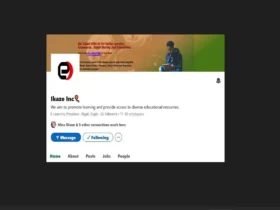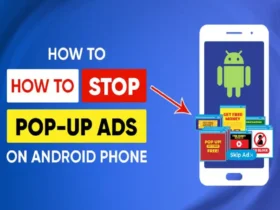Why Look Beyond Google AdSense?
Monetization strategies that rely solely on Google AdSense can be limiting, particularly in Sub-Saharan Africa. Factors such as low ad rates, strict eligibility requirements, and fluctuating payouts make it challenging for bloggers to rely entirely on this platform. By exploring alternative monetization strategies, bloggers can unlock new opportunities and build sustainable income streams.
Affiliate Marketing: A Lucrative Alternative
One of the most effective monetization strategies for bloggers is affiliate marketing. This involves promoting products or services and earning a commission for every sale made through your referral link. In Sub-Saharan Africa, affiliate programs like Jumia Affiliate Program, Konga Affiliate Program, and Amazon Associates are gaining popularity.
For instance, a fashion blogger in Nigeria can partner with Jumia to promote clothing and accessories. By including affiliate links in blog posts, social media, or email newsletters, bloggers can earn passive income while providing value to their audience.
Sponsored Content and Brand Collaborations
Sponsored content is another excellent addition to your monetization strategies. Brands are always looking for influencers and bloggers to promote their products or services. In Sub-Saharan Africa, companies like MTN, Dangote, and Safaricom often collaborate with bloggers to reach their target audience.
To attract sponsors, bloggers should focus on building a strong personal brand and growing their audience. A tech blogger in Kenya, for example, could partner with a smartphone brand to review their latest product. In exchange, the blogger receives payment or free products.
Selling Digital Products
Creating and selling digital products is one of the most scalable monetization strategies for bloggers. E-books, online courses, templates, and printables are in high demand, especially in Sub-Saharan Africa, where access to quality educational resources is limited.
For example, a finance blogger in South Africa could create an e-book titled “10 Steps to Financial Freedom in Africa” and sell it to their audience. Similarly, a food blogger could offer a downloadable recipe book or a meal-planning template.
| Digital Product Ideas | Potential Audience |
|---|---|
| E-books | Readers, students |
| Online courses | Professionals, hobbyists |
| Templates | Entrepreneurs, designers |
| Printables | Parents, teachers |
Offering Freelance Services
Many bloggers in Sub-Saharan Africa are experts in their niches, making freelance services a viable monetization strategy. Whether it’s writing, graphic design, social media management, or consulting, offering services can generate significant income.
A travel blogger in Ghana, for instance, could offer travel planning services or create custom itineraries for clients. By showcasing their expertise on their blog, they can attract clients willing to pay for their skills.
Membership Programs and Subscriptions
Membership programs and subscription-based models are gaining traction as effective monetization strategies. Bloggers can offer exclusive content, early access to posts, or personalized advice to subscribers for a recurring fee.
For example, a health and wellness blogger in Nigeria could launch a premium membership program that includes workout plans, diet charts, and one-on-one coaching sessions. Platforms like Patreon and Substack make it easy to set up and manage subscriptions.
Hosting Webinars and Workshops
Webinars and workshops are interactive monetization strategies that allow bloggers to connect with their audience while earning income. These events can be hosted online or in person, depending on the target audience.
A business blogger in Kenya could host a webinar on “How to Start a Successful Business in Africa” and charge attendees a fee. Alternatively, they could offer free webinars to build trust and later upsell premium content or services.
Leveraging Social Media
Social media platforms like Instagram, Twitter, and TikTok are powerful tools for expanding your monetization strategies. By growing a loyal following, bloggers can attract sponsors, promote affiliate products, and sell their own offerings.
For instance, a beauty blogger in Nigeria could use Instagram to showcase makeup tutorials and partner with beauty brands for sponsored posts. Similarly, a fitness blogger could use TikTok to share workout videos and promote fitness products.
Crowdfunding and Donations
Crowdfunding and donations are community-driven monetization strategies that work well for bloggers with a dedicated audience. Platforms like GoFundMe, Patreon, and Buy Me a Coffee allow readers to support their favorite bloggers financially.
A blogger in Uganda running a nonprofit-focused blog could use crowdfunding to raise money for community projects. By sharing impactful stories and transparently using funds, they can build trust and encourage ongoing support.
Creating a YouTube Channel
Diversifying into video content is one of the most dynamic monetization strategies for bloggers. YouTube allows creators to earn through ad revenue, sponsorships, and affiliate marketing. In Sub-Saharan Africa, where video content is increasingly popular, this can be a game-changer.
A tech blogger in South Africa could create video reviews of gadgets and monetize their channel through YouTube ads and brand partnerships. Additionally, they can include affiliate links in the video descriptions to boost earnings.
See this course is for you now
Selling Physical Products
For bloggers with a creative edge, selling physical products is a profitable monetization strategy. This could include merchandise, handmade crafts, or niche-specific items.
A lifestyle blogger in Kenya could design and sell branded T-shirts, mugs, or tote bags to their audience. Similarly, a blogger in Ghana could sell handmade jewelry or artwork inspired by their cultural heritage.
Email Marketing: Building a Loyal Audience
Email marketing remains one of the most effective monetization strategies for bloggers. By building an email list, bloggers can nurture relationships with their audience and promote products or services directly.
For example, a finance blogger in Nigeria could send weekly newsletters with money-saving tips and affiliate product recommendations. Over time, this can lead to consistent sales and increased revenue.
Partnering with Local Businesses
Collaborating with local businesses is a unique monetization strategy that benefits both parties. Bloggers can offer advertising space, write sponsored posts, or organize joint events.
A food blogger in Tanzania could partner with a local restaurant to promote their menu in exchange for a fee or free meals. This not only generates income but also strengthens community ties.
Utilizing SEO to Boost Earnings
Search engine optimization (SEO) is a critical component of successful monetization strategies. By optimizing their content for search engines, bloggers can attract more traffic and increase their earning potential.
For instance, a travel blogger in Rwanda could use SEO to rank higher for keywords like “best safari destinations in Africa.” This would drive more organic traffic to their blog, leading to higher ad revenue and affiliate sales.
Exploring Niche-Specific Monetization
Niche-specific monetization strategies can be highly effective for bloggers with a focused audience. For example, a blogger specializing in renewable energy in Sub-Saharan Africa could partner with solar companies to promote their products.
Similarly, a blogger focusing on education could collaborate with e-learning platforms to offer discounted courses to their audience. By aligning monetization efforts with their niche, bloggers can maximize their earnings.
Monetizing Through Podcasts
Podcasting is another growing avenue for monetization strategies. Bloggers can start a podcast related to their niche and monetize it through sponsorships, listener donations, or premium content.
For example, a business blogger in Nigeria could launch a podcast discussing entrepreneurship in Africa. By partnering with brands or offering exclusive episodes to paying subscribers, they can create an additional revenue stream.
Offering Consulting or Coaching Services
If you have expertise in a particular field, offering consulting or coaching services can be a lucrative monetization strategy. Bloggers can provide one-on-one sessions, group coaching, or even create online courses.
A career blogger in South Africa, for instance, could offer resume review services or career coaching sessions. This not only generates income but also establishes the blogger as an authority in their niche.
Creating a Paid Newsletter
Paid newsletters are becoming increasingly popular as a monetization strategy. Bloggers can offer in-depth analysis, exclusive insights, or curated content to subscribers who are willing to pay for premium information.
A political blogger in Kenya could create a paid newsletter offering detailed analysis of current events and policy changes. Platforms like Substack make it easy to set up and manage paid newsletters.
Leveraging E-commerce Platforms
Integrating e-commerce into your blog is another effective monetization strategy. Bloggers can sell products directly through their website using platforms like Shopify or WooCommerce.
For example, a beauty blogger in Ghana could create an online store selling skincare products. By leveraging their blog traffic, they can drive sales and increase revenue.
Hosting Virtual Events
Virtual events such as conferences, meetups, or networking sessions can be a great monetization strategy. Bloggers can charge attendees a fee to participate or offer free events with paid premium features.
A tech blogger in Nigeria could host a virtual tech conference featuring industry experts. By offering exclusive content or networking opportunities to paying attendees, they can generate significant income.
Utilizing Donation Buttons and Tips
Adding donation buttons or tip jars to your blog is a simple yet effective monetization strategy. Platforms like PayPal and Ko-fi allow readers to support bloggers with small donations.
A blogger in Uganda running a personal development blog could add a donation button to their site. By encouraging readers to support their work, they can generate additional income.
Exploring Grants and Sponsorships
Grants and sponsorships are often overlooked monetization strategies that can provide substantial funding for bloggers. Many organizations and companies offer grants or sponsorships to bloggers who align with their mission.
For example, a blogger focusing on environmental issues in Sub-Saharan Africa could apply for grants from environmental organizations. By securing funding, they can continue producing valuable content while earning income.
Building a Community Platform
Creating a community platform around your blog can be a powerful monetization strategy. Bloggers can charge membership fees for access to exclusive forums, groups, or content.
A parenting blogger in South Africa could create a private Facebook group offering parenting advice and resources. By charging a membership fee, they can generate recurring revenue while building a loyal community.
Conclusion: Diversify to Thrive
In conclusion, monetization strategies for bloggers in Sub-Saharan Africa extend far beyond Google AdSense. By exploring options like affiliate marketing, sponsored content, digital products, and freelance services, bloggers can create multiple income streams and achieve financial independence.
The key to success lies in diversification and adaptability. As the digital landscape continues to evolve, bloggers who embrace innovative monetization strategies will be well-positioned to thrive in the competitive world of blogging.
By implementing these monetization strategies, bloggers in Sub-Saharan Africa can turn their passion into a profitable venture. Start exploring these options today and take your blog to the next level!
See also The 8 Keys to the Success of Cristiano Ronaldo and Elon Musk































